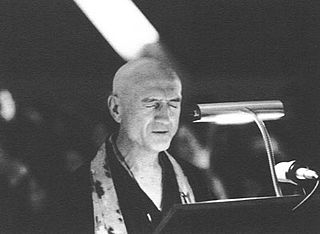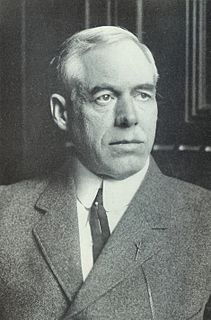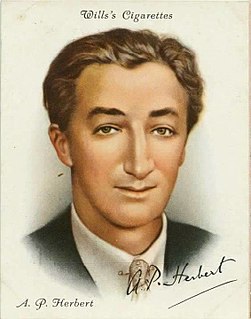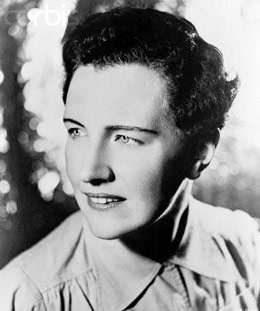A Quote by Philip Kapleau
For the ordinary man, whose mind is a checkerboard of crisscrossing reflections, opinions, and prejudices, bare attention is virtually impossible; his life is thus centered not in reality itself but in his ideas of it. By focusing the mind wholly on each objects and every action, zazen strips it of extraneous thoughts and allows us to enter into a full rapport with life.
Related Quotes
The ordinary method of education is to imprint ideas and opinions, in the strict sense of the word, prejudices, on the mind of the child, before it has had any but a very few particular observations. It is thus that he afterwards comes to view the world and gather experience through the medium of those ready-made ideas, rather than to let his ideas be formed for him out of his own experience of life, as they ought to be.
The inlet of a man's mind is what he learns; the outlet is what he accomplishes. If his mind is not fed by a continued supply of new ideas which he puts to work with purpose, and if there is no outlet in action, his mind becomes stagnant. Such a mind is a danger to the individual who owns it and is useless to the community.
According to the technical language of old writers, a thing and its qualities are described as subject and attributes; and thus a man's faculties and acts are attributes of which he is the subject. The mind is the subject in which ideas inhere. Moreover, the man's faculties and acts are employed upon external objects; and from objects all his sensations arise. Hence the part of a man's knowledge which belongs to his own mind, is subjective: that which flows in upon him from the world external to him, is objective.
God Himself - His thoughts, His will, His love, His judgments are men's home. To think His thoughts, to choose His will, to judge His judgments, and thus to know that He is in us, with us, is to be at home. And to pass through the valley of the shadow of death is the way home, but only thus, that as all changes have hitherto led us nearer to this home, the knowledge of God, so this greatest of all outward changes - for it is but an outward change - will surely usher us into a region where there will be fresh possibilities of drawing nigh in heart, soul, and mind to the Father of us all.
A library represents the mind of its collector, his fancies and foibles, his strength and weakness, his prejudices and preferences. Particularly is this the case if, to the character of a collector, he adds - or tries to add - the qualities of a student who wishes to know the books and the lives of the men who wrote them. The friendships of his life, the phases of his growth, the vagaries of his mind, all are represented.
I know not whether it would be too bold an assertion to say that candor makes capacity.... But in order to try the truth of any observation relating to the mind, the easiest method is to illustrate it by outward objects. If, for instance, a man was to sweat and labor all the days of his life to fill a chest which was already full, the absurdity of his vain endeavor would be glaring. In the same manner, when the human mind is filled and stuffed with notions brought thither by fallacious inclinations, there is no room for truth to enter: candor being banished, passions alone bear the sway.
Ideas are powerful things, requiring not a studious contemplation but an action, even if it is only an inner action. Their acquisition obligates each man in some way to change his life, even if it is only his inner life. They demand to be stood for. They dictate where a man must concentrate his vision. They determine his moral and intellectual priorities. They provide him with allies and make him enemies. In short, ideas impose an interest in their ultimate fate which goes far beyond the realm of the merely reasonable.
When you meditate you have to try to quiet and calm the mind. There should be no thought within the mind. Right now you feel that if you can cherish twenty ideas at a time, then you are the wisest man on earth. The more thoughts that enter into our minds, the more clever we feel we are. But in the spiritual life it is not like that. If consciously we can make the mind calm and quiet, we feel that a new creation dawns inside us.
The mind, by its very nature, persistently tries to live forever, resisting age and attempting to give itself a form... . When a person passes his prime and his life begins to lose true vigor and charm, his mind starts functioning as if it were another form of life; it imitates what life does, eventually doing what life cannot do.
A purely mental life may be destructive if it leads us to substitute thought for life and ideas for actions. The activity proper to man is purely mental because man is not just a disembodied mind. Our destiny is to live out what we think, because unless we live what we know, we do not even know it. It is only by making our knowledge part of ourselves, through action, that we enter into the reality that is signified by our concepts.
Each man in his life honors, and imitates as well as he can, that god to whose choir he belonged, while he is uncorrupted in his first incarnation here; and in the fashion he has thus learned, he bears himself to his beloved as well as to the rest. So, then, each chooses from among the beautiful a love conforming to his kind, and then, as if his chosen were his god, he sets him up and robes him for worship.
































